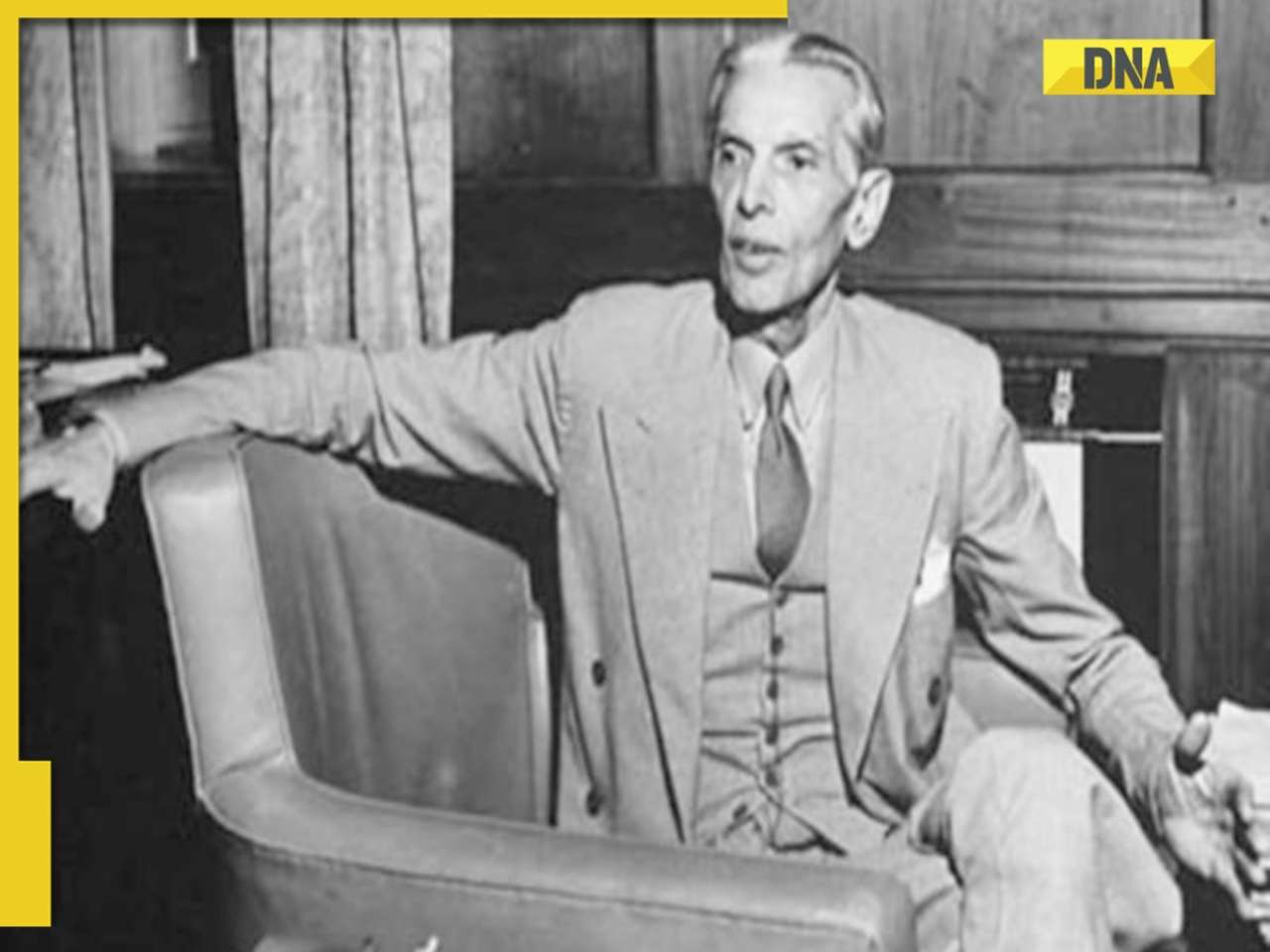Hormonal issues like PCOS and thyroid imbalances are among the most common causes of hair loss, especially in young women.
If you are in your 20s or 30s and already struggling with hair thinning or loss, you are not alone. Hair loss is no longer just a problem for the elderly. In fact, many young Indian men and women are dealing with hair problems, and experts say our everyday lifestyle habits are a big reason for it.
A 2024 study published in the International Journal of Trichology found that more than 90 percent of Indian women with thinning hair also showed signs of hair loss and had symptoms of underlying health conditions like PCOS and high cholesterol. Another study by Kripa Shankar, also in the International Journal of Trichology, found that 58 percent of Indian men aged 30-50 were already showing signs of male pattern baldness. But why is this happening?
1. Hormonal health and hair loss
Hormonal issues like PCOS and thyroid imbalances are among the most common causes of hair loss, especially in young women. Many people only discover these conditions after their hair starts thinning abnormally. These problems require proper medical care, not just shampoos or oils.
2. Lack of physical activity
Regular exercise boosts blood circulation, maintains hormonal balance, and provides oxygen and nutrients to hair follicles. A sedentary lifestyle, on the other hand, can lead to poor scalp health, excess oil or dryness, and dandruff - all of which further aggravate hair loss.
- Aim to do at least 30 minutes of activity every day, like walking, yoga or cycling.
- Avoid sitting for long periods without a break.
3. Your diet reflects on your hair
What you eat plays a major role in the health of your hair. Hair is made up mostly of protein (keratin), so a lack of protein can weaken it. A diet low in iron, zinc and vitamins D and B12 can lead to thinning and brittle hair.
- Eat a balanced diet rich in proteins (pulses, eggs, lean meat), green leafy vegetables, fruits, nuts and seeds.
- Reduce your intake of processed foods and sugar, as these can cause inflammation and hormonal problems.
- Avoid diets and extreme food cycles – they disrupt nutrient intake and put stress on the body.
4. How you take care of your hair matters
Many daily hair habits actually do more harm than good. Constant heat styling, tight hairstyles and rough combing put pressure on hair follicles and weaken hair over time.
- Be gentle when brushing or styling your hair.
- Limit the use of hot tools such as dryers, straighteners and curlers.
- Don’t tie your hair too tightly, especially in a high ponytail or bun.
- Keep your scalp clean by washing it regularly with a mild shampoo.
5. Stress and sleep
Mental health also plays a big role in hair health. Constant stress increases cortisol levels and can lead to telogen effluvium - a condition in which hair falls out faster than normal. Poor sleep has a similar effect on the body’s recovery and hormone levels.
Also read: From Nita Ambani's saree to Radhika Merchant's contemporary glam, the Ambani family turned heads at Mumbai wedding
Find your daily dose of All
Latest News including
Sports News,
Entertainment News,
Lifestyle News, explainers & more. Stay updated, Stay informed-
Follow DNA on WhatsApp. India vs England 4th Test: Will rain play spoilsport on Day 4 at Old Trafford? Check Manchester weather forecast here
India vs England 4th Test: Will rain play spoilsport on Day 4 at Old Trafford? Check Manchester weather forecast here American beef is back in Australia after 20-years long ban lifted, US president Donald Trump says, 'will sell so much...'
American beef is back in Australia after 20-years long ban lifted, US president Donald Trump says, 'will sell so much...' 'Judiciary centre attacked': Eight killed in terror attack in Iran's Zahedan, here's what we know so far
'Judiciary centre attacked': Eight killed in terror attack in Iran's Zahedan, here's what we know so far War 2: Jr NTR earning Rs 12 crore more than Hrithik Roshan for YRF's action thriller, Kiara Advani charging less than half of both, their fees are...
War 2: Jr NTR earning Rs 12 crore more than Hrithik Roshan for YRF's action thriller, Kiara Advani charging less than half of both, their fees are... Swiggy, McDonald’s join hands, launch this high protein food from..., consumers can order by...
Swiggy, McDonald’s join hands, launch this high protein food from..., consumers can order by...  Other than heart attacks or BP : 7 hidden heart conditions triggered by oily foods
Other than heart attacks or BP : 7 hidden heart conditions triggered by oily foods 7 most captivating space images captured by NASA you need to see
7 most captivating space images captured by NASA you need to see AI-remagined famous Bollywood father-son duos will leave you in splits
AI-remagined famous Bollywood father-son duos will leave you in splits 7 superfoods that boost hair growth naturally
7 superfoods that boost hair growth naturally Confused between Forex and Credit cards for your international trip? Learn which saves more
Confused between Forex and Credit cards for your international trip? Learn which saves more Tata Harrier EV Review | Most Advanced Electric SUV from Tata?
Tata Harrier EV Review | Most Advanced Electric SUV from Tata? Vida VX2 Plus Electric Scooter Review: Range, Power & Real-World Ride Tested!
Vida VX2 Plus Electric Scooter Review: Range, Power & Real-World Ride Tested! MG M9 Electric Review | Luxury EV with Jet-Style Rear Seats! Pros & Cons
MG M9 Electric Review | Luxury EV with Jet-Style Rear Seats! Pros & Cons Iphone Fold: Apple’s iPhone Fold Could Solve Samsung’s Biggest Foldable Problem | Samsung Z Fold 7
Iphone Fold: Apple’s iPhone Fold Could Solve Samsung’s Biggest Foldable Problem | Samsung Z Fold 7 Trump News: Congress Seeks Answers On Trump's Alleged Mediation In Operation Sindoor
Trump News: Congress Seeks Answers On Trump's Alleged Mediation In Operation Sindoor This man becomes world's highest-earning billionaire in 2025, beats Elon Musk and Jeff Bezos, Mukesh Ambani is at...
This man becomes world's highest-earning billionaire in 2025, beats Elon Musk and Jeff Bezos, Mukesh Ambani is at... Meet man who built Rs 200,000,000 empire after two failed ventures, his business is..., net worth is Rs...
Meet man who built Rs 200,000,000 empire after two failed ventures, his business is..., net worth is Rs... Meet man, founder of app under govt lens, also owns Rs 1000000000 business, he is..., his educational qualification is...
Meet man, founder of app under govt lens, also owns Rs 1000000000 business, he is..., his educational qualification is... Jinnah wanted THIS Muslim man to be first Finance Minister of Pakistan, he refused, his son is on Forbes list of billionaires
Jinnah wanted THIS Muslim man to be first Finance Minister of Pakistan, he refused, his son is on Forbes list of billionaires After India-UK FTA, New Delhi to begin talks with THIS country, because...
After India-UK FTA, New Delhi to begin talks with THIS country, because... Inside Ahaan Panday’s academic journey before his Bollywood debut in Saiyaara
Inside Ahaan Panday’s academic journey before his Bollywood debut in Saiyaara From Alia Bhatt to Anushka Sharma: 5 Bollywood moms who are redefining style
From Alia Bhatt to Anushka Sharma: 5 Bollywood moms who are redefining style Want to think like a billionaire? Try these 5 habits followed by Bill Gates, Narayana Murthy and others
Want to think like a billionaire? Try these 5 habits followed by Bill Gates, Narayana Murthy and others In Pics: Tara Sutaria brings fairytale magic to ramp in a shimmering golden gown at ICW 2025
In Pics: Tara Sutaria brings fairytale magic to ramp in a shimmering golden gown at ICW 2025 From Love in the Moonlight to Moon Embracing the Sun: 7 must-watch K-dramas
From Love in the Moonlight to Moon Embracing the Sun: 7 must-watch K-dramas Indian Army to transform into ‘future oriented force’, chief announces new all-arms brigades called..., it is equipped with...,know details inside
Indian Army to transform into ‘future oriented force’, chief announces new all-arms brigades called..., it is equipped with...,know details inside Good news for Railway passengers! Indian Railways rolls out new ticket booking rules for...
Good news for Railway passengers! Indian Railways rolls out new ticket booking rules for... BIG Update on Noida's Jewar International Airport Expansion: 4600 families, 7 schools affected as government to acquire...
BIG Update on Noida's Jewar International Airport Expansion: 4600 families, 7 schools affected as government to acquire... Kargil War Diwas: What is Operation Safed Sagar? When India dominated Pakistan with its air power during Kargil War on May 26
Kargil War Diwas: What is Operation Safed Sagar? When India dominated Pakistan with its air power during Kargil War on May 26 Big Boost for Ghaziabad: DMRC plans 4 metro corridors, Gokulpuri-Hindon Airport link proposed
Big Boost for Ghaziabad: DMRC plans 4 metro corridors, Gokulpuri-Hindon Airport link proposed Meet IPS officer, DU grad, who cracked UPSC exam in her third attempt, secured 992 out of 2025 marks with AIR..., now married to IAS...
Meet IPS officer, DU grad, who cracked UPSC exam in her third attempt, secured 992 out of 2025 marks with AIR..., now married to IAS... Meet woman, who studied MBBS, later cracked UPSC with AIR..., became popular IAS officer for these reasons, shares similarities with IAS Tina Dabi, she is from...
Meet woman, who studied MBBS, later cracked UPSC with AIR..., became popular IAS officer for these reasons, shares similarities with IAS Tina Dabi, she is from... Meet Nilufa Yasmine, who topped UGC NET June exam, failed twice before scoring a perfect 100, she is from...
Meet Nilufa Yasmine, who topped UGC NET June exam, failed twice before scoring a perfect 100, she is from... Meet woman, daughter of vegetable vendor who cracked UPSC, her mother mortgaged gold for her education, her AIR is…
Meet woman, daughter of vegetable vendor who cracked UPSC, her mother mortgaged gold for her education, her AIR is… Meet woman, who cracked IIT with full-time job, secured impressive AIR of...; now works at Bill Gates' Microsoft as...
Meet woman, who cracked IIT with full-time job, secured impressive AIR of...; now works at Bill Gates' Microsoft as... Maruti Suzuki's e Vitara set to debut electric market at Rs..., with range of over 500 km, to launch on...
Maruti Suzuki's e Vitara set to debut electric market at Rs..., with range of over 500 km, to launch on... This is world’s most expensive wood, cost of 1kg wood is more than gold, its name is..., is found in...
This is world’s most expensive wood, cost of 1kg wood is more than gold, its name is..., is found in... This luxury car is first choice of Indians, even left BMW, Jaguar, Audi behind in sales, it is...
This luxury car is first choice of Indians, even left BMW, Jaguar, Audi behind in sales, it is... Kia India unveils Carens Clavis: Check features, design changes, price and more; bookings open on...
Kia India unveils Carens Clavis: Check features, design changes, price and more; bookings open on... Tesla CEO Elon Musk launches most affordable Cybertruck, but it costs Rs 830000 more than older version, it is worth Rs...
Tesla CEO Elon Musk launches most affordable Cybertruck, but it costs Rs 830000 more than older version, it is worth Rs...





)
)
)
)
)
)
)
)
)
)
)
)
)
)
)
)










